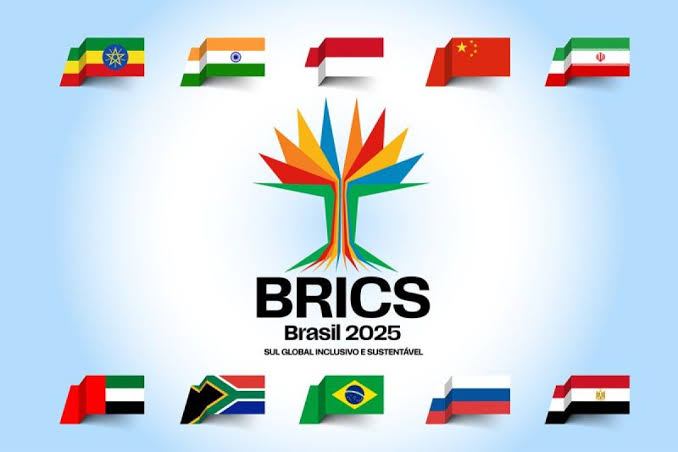The BRICS nations—Brazil, Russia, India, China, and South Africa—held a significant virtual meeting of their leaders. Convened by Brazil’s President Luiz Inácio Lula da Silva, the summit aimed to address pressing global challenges, especially rising geopolitical tensions, unilateral trade policies, and protectionism. The leaders collectively underscored the importance of preserving and strengthening multilateralism and international institutional reforms. Despite India’s Prime Minister Narendra Modi skipping the meeting, represented by Foreign Minister S. Jaishankar, the summit underscored the bloc’s resolve to enhance cooperation and safeguard global trade and financial stability through deeper integration .
Key Highlights from the BRICS Summit
Reinforcing Multilateralism and Reform
-
The BRICS group reaffirmed its commitment to a rules-based international order grounded in multilateralism, calling for reform of major global institutions such as the United Nations, the International Monetary Fund (IMF), and the World Bank.
-
Leaders emphasized the need to increase representation and voting shares for emerging and developing countries to ensure a fairer and more equitable global governance system .
Addressing Global Trade and Protectionism
-
The summit strongly addressed unilateral tariff actions, notably reacting to U.S. tariffs imposed under the Trump administration, which leaders viewed as damaging to global trade stability.
-
Lula highlighted the importance of trade and financial integration within BRICS countries as a "safe option" to mitigate the adverse effects of rising protectionism and tariff conflicts.
-
Discussions also focused on supporting the global multilateral trading system and making it more inclusive and resilient to shocks .
Leadership Participation and Diplomacy
-
Brazil’s President Lula chaired the session, stressing the collective strategy to confront economic and geopolitical uncertainties while fostering cooperation among emerging economies.
-
Russia’s President Vladimir Putin and China’s President Xi Jinping participated virtually, delivering key statements supporting deeper BRICS cooperation.
-
India’s participation was led by Foreign Minister S Jaishankar, reflecting a strategic balance amid India’s complex trade relations with the U.S.
-
South African President Cyril Ramaphosa called for diversified trade and investment partnerships across Africa, Asia, the Gulf, the Americas, and Europe, highlighting the Global South’s potential .
Climate and Sustainable Development Agenda
-
Brazil’s Lula also advanced the climate agenda, encouraging BRICS to lead in addressing the global climate crisis while pushing for reforms that support sustainable development goals.
-
The group acknowledged divergent climate priorities among member states but emphasized the importance of collaborative efforts to finance climate action and infrastructure via institutions like the New Development Bank .
BRICS as a Platform for Emerging Economies
-
The meeting reaffirmed BRICS' role as a positive and stable force promoting equity and justice in international affairs, especially amid rising unilateralism, protectionism, and geopolitical tensions.
-
It was noted that the BRICS cooperation mechanism offers an important platform for solidarity among emerging markets and developing countries, facilitating open, inclusive, and win-win cooperation .
Additional Aspects of the Summit
-
The virtual summit lasted approximately one and a half hours, with speeches closed to the press and no joint declaration planned at the end.
-
Each leader had discretion over the publication of their remarks.
-
The session underscored the need for dialogue, consultation, and mutual benefit among nations to reform the international system to reflect contemporary global realities .
Conclusion
The September 8 virtual meeting of BRICS leaders was a decisive moment signaling their united front to defend and reform multilateralism amidst a fracturing global order. By emphasizing trade and financial integration and calling for international institutional reforms, the bloc highlighted its growing influence and commitment to shaping a more equitable and sustainable global future. Brazil’s leadership as chair, alongside active participation from Russia, China, South Africa, and India’s representation, emphasized the collective resolve to foster cooperation that benefits emerging and developing nations worldwide.
Source: Reuters, NDTV, Bloomberg, Brazil Government Statements, and official BRICS communications
